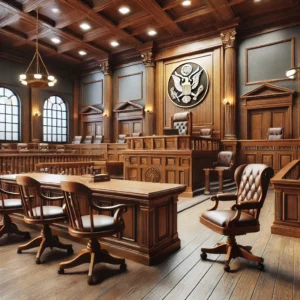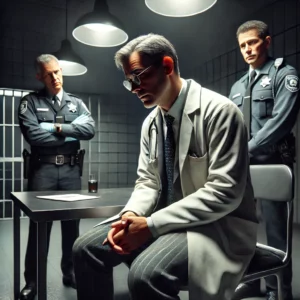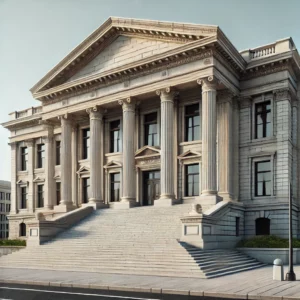New Legislation Targets Motels Following Recent Trafficking Arrest
Howard County officials are advancing legislation to prohibit hourly motel room rentals as part of a broader effort to combat sex trafficking operations. The bill, introduced on February 3, received a public hearing on March 17, 2025, with strong community support and no opposition voiced. This legislative action follows the February arrest of Robert Bennett Jr., who allegedly ran a sex trafficking operation from the Terrace Motel in Elkridge, where authorities say he arranged prostitution encounters, assaulted victims, and stole their money—sometimes at gunpoint—while controlling them through drugs and threats.
5 Key Points
- The proposed legislation would specifically ban hourly room rentals at motels and hotels in Howard County.
- Robert Bennett Jr. faces 47 criminal counts, including sex trafficking, prostitution, armed robbery, and weapons violations.
- Maryland Senator Clarence Lam introduced A similar bill at the state level.
- Howard County established a human trafficking task force in 2014 and an Office of Human Trafficking Prevention in 2017.
- Four people testified in favor of the bill at the public hearing, with no opposition registered.
Why Is Howard County Targeting Hourly Room Rentals in Its Fight Against Sex Trafficking?
Howard County officials have identified hourly motel rentals as a critical vulnerability that enables sex trafficking operations to flourish. The proposed legislation directly addresses this issue by prohibiting the short-term rental practice often associated with prostitution and trafficking activities. County Councilwoman Liz Walsh, who introduced the bill, developed the legislation after residents along the Route 1 corridor complained about human trafficking and other illicit activities at motels in the area. The geographic position of Howard County, situated between Washington D.C. and Baltimore, has made it particularly susceptible to trafficking operations, prompting officials to take increasingly aggressive steps to combat this form of exploitation. By eliminating hourly rentals, authorities hope to disrupt the business model that traffickers rely on to conduct their illegal operations while making it easier for law enforcement to identify and intervene in potential trafficking situations.
How Did Recent Criminal Charges Influence the Timing of This Legislation?
The arrest of Robert Bennett Jr. in early February provided a stark illustration of the problem the legislation aims to address. Howard County Police began investigating Bennett in November 2024 after receiving a tip about his activities at the Terrace Motel in Elkridge. According to police, Bennett, known by the nickname “RoFo,” allegedly arranged prostitution encounters for several women, assaulted them, and stole their money—sometimes using a firearm to threaten his victims. Investigators report that Bennett controlled his victims by providing them with drugs and making threats. Following his February 6 arrest, Bennett was charged with 47 criminal counts, including sex trafficking, prostitution, armed robbery, theft, and weapons violations. He remains held without bond at the Howard County Detention Center. This high-profile case has galvanized community support for the proposed legislation, highlighting the real-world consequences of trafficking operations in local motels.
What Do Industry Representatives Say About the Proposed Ban?
The hospitality industry has not taken an official position opposing the legislation. Amy Rohrer, president and CEO of the Maryland Hotel Lodging Association, acknowledged the industry’s unique position in combating trafficking, stating, “Since trafficking networks often rely on legitimate businesses to sustain their illicit and illegal operations, hoteliers are uniquely positioned to lead efforts to identify and disrupt this terrible practice.” Rohrer noted that association members already train employees on identifying signs of human trafficking and notifying law enforcement when suspicious activity is observed. The lack of industry opposition at the public hearing suggests that legitimate hotel businesses recognize the importance of distinguishing themselves from operations that may enable trafficking. This cooperative stance may facilitate the bill’s passage and implementation, as the economic impact on legitimate businesses appears minimal compared to the potential benefits for public safety.
How Does This Bill Fit Into Howard County’s Broader Anti-Trafficking Strategy?
The hourly rental ban represents the latest development in Howard County’s comprehensive approach to combating human trafficking. The county established a dedicated task force in 2014 to coordinate anti-trafficking efforts, followed by the creation of an Office of Human Trafficking Prevention in 2017. These institutional resources have enabled a sustained, multi-faceted response to trafficking that includes prevention, enforcement, and victim services. Howard County law enforcement regularly conducts operations targeting prostitution and trafficking, with a focus on arresting traffickers while offering assistance to victims through housing, treatment, transportation, and other services. The proposed legislation complements these existing efforts by addressing a specific vulnerability in the hospitality sector that traffickers have exploited. By targeting hourly rentals, the county aims to make it more difficult for traffickers to operate while maintaining its commitment to supporting victims rather than criminalizing them.
FAQ
Q: When would the ban on hourly motel rentals take effect if passed?
A: The bill was introduced on February 3, 2025, with a public hearing on March 17, 2025. If passed, it would likely take effect shortly after final approval by the Howard County Council, though an exact implementation date has not been specified in the available information.
Q: How prevalent is sex trafficking in Howard County compared to other Maryland counties?
A: While exact comparative statistics aren’t available in the source material, Howard County’s position between Washington D.C. and Baltimore has made it a focus area for trafficking. The county’s establishment of specialized resources like the Office of Human Trafficking Prevention indicates officials recognize it as a significant local issue.
Q: Would the ban affect legitimate short-term hotel stays?
A: The legislation specifically targets hourly rentals, not all short-term stays. This legislation would not affect standard hotel bookings with minimum stays of a full day, allowing legitimate hospitality businesses to continue normal operations.
Q: How do police identify potential trafficking situations at hotels and motels?
A: According to industry representatives, hotel employees are trained to recognize signs of trafficking, such as guests who pay in cash, refuse housekeeping services, have multiple visitors, or show signs of physical abuse. These observations help hotel staff alert law enforcement to potential trafficking situations.
Q: What happens to trafficking victims when an operation is shut down?
A: Howard County Police state that victims are referred to local organizations for services, including housing, treatment, transportation, and other support. This victim-centered approach focuses on providing resources rather than criminalizing those who have been trafficked.
Q: Is there similar legislation being considered at the state level?
A: Maryland Senator Clarence Lam has introduced a similar bill in the Maryland General Assembly that would ban hourly rentals statewide. The parallel county and state efforts show a coordinated approach to addressing trafficking through legislative means.
Q: Has Robert Bennett Jr. been convicted of the trafficking charges?
A: As of the most recent reporting, Bennett has been charged but has not yet been convicted. He remains held without bond at the Howard County Detention Center, awaiting trial on 47 criminal counts.
Citations
CBS Baltimore. (2025, March 17). Proposed Howard County Bill aims to tackle sex trafficking by prohibiting hourly motel room rentals. CBS Baltimore. https://www.cbsnews.com/baltimore/news/proposed-bill-sex-traffiking-rentals-howard-county/
The Baltimore Banner. (2025, March 21). Howard County: Proposed ban on hourly rentals aims to curb sex trafficking. The Baltimore Banner. https://www.thebaltimorebanner.com/community/criminal-justice/howard-county-ban-hourly-rentals-sex-trafficking-ATDFSV5WU5CQDNRSFW2A3KB6RU/
CBS Baltimore. (2025, March 15). Baltimore man charged in alleged Howard County sex-trafficking operation. CBS Baltimore. https://www.cbsnews.com/baltimore/news/baltimore-man-charged-howard-county-sex-trafficking-operation/
Howard County Government. (2025). Human Trafficking Prevention. Howard County. https://www.howardcountymd.gov/human-trafficking-prevention
Baltimore Sun. (2025, March 18). Many Howard residents welcome ban on hourly rates at motels after man charged with sex trafficking in Elkridge. Baltimore Sun. https://www.baltimoresun.com/2025/03/18/hotel-hourly-rentals-howard/








